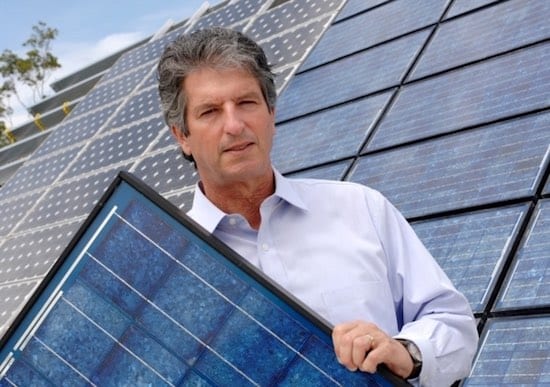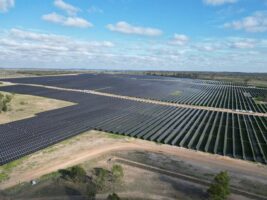Australia’s “father of PV,” UNSW Scientia Professor Martin Green was handed the 2018 Global Energy Prize at a ceremony in Moscow on Thursday night, after beating the likes of Tesla’s Elon Musk to become the first Australian to win the $820,000 gong.
As we reported here when the well deserved win was first announced, Green’s team supplied the solar cells for the first photovoltaic system in 1989, with an energy conversion efficiency of 20 per cent.
In 2014, he headed the development team that first demonstrated the conversion of sunlight into electricity with an efficiency of 40 per cent.
Professor Green also invented the PERC solar cell, which accounted for more than 24 per cent of the world’s silicon cell manufacturing capacity at the end of 2017.
On top of all that, the research group he founded at UNSW – the largest and best-known university-based PV research group in the world – is broadly credited with driving the enormous reductions in costs in solar PV, largely through the work of his students in establishing manufacturing centres in Asia.
Reflecting on his award, Professor Green thanked his wife, “…my own renewable resource” for giving him the freedom to pursue his passion, and paid tribute to the “thousands of solar researchers who have worked in the field for many years.”
In particular, he was keen to thank his colleagues at UNSW and elsewhere who helped “not just make PERC [solar cells] a reality, but also to bring it to market and to have driven such scale.”
Green remains passionate about solar, and the massive potential it still has to help the world avoid dangerous climate change, by using clean, renewable power.
“If you look at the figures from the last few years growth has consistently stayed at around 40 per cent a year,” Green told RE in June.
“If it keeps growing at that rate, we’re looking at hitting a terawatt of solar production in 2024.
“Even if it slows to growth of 20 per cent a year, we are on track to reach production levels of a TW a year in the late 2020s.
“And that’s the area where you can really start cutting greenhouse gases.”
Which is why awards like this one are so important.
“I think (this is) a good opportunity to get across the message that things have changed with solar and that it’s the best option out there,” Green said.
“That’s an important message to get out.
“There’s a growing consensus that we’re going to get most of our energy out of solar down the track.
“It’s not a matter having to help solar along. It’s not about removing the last remaining barriers – and getting out of the way of (renewable energy),” he said.










